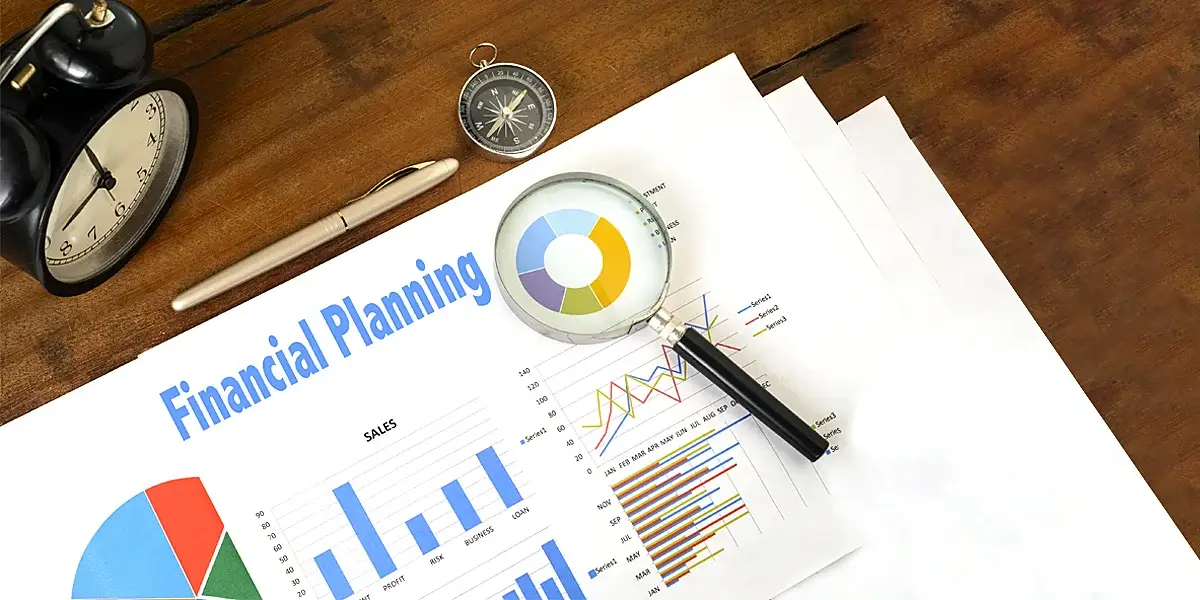In this article you will find financial planning tips which is one of the most significant aspects of our lives. However, because we are young professionals’, we underestimate this aspect because we believe we will plan for it later. However, you know what? Reaching financial objectives, accumulating wealth, and guaranteeing long-term financial stability may all be greatly impacted by effective financial planning. When it comes time for retirement, you’ll be in a better position if you begin considering how much money you need and how much debt you have is too much as soon as possible.
Thus, in this section, we’ll discuss the value of financial planning for young professionals’ and provide tips for saving money in order to meet financial objectives.
Financial Planning: What Is It?

Analyzing your existing financial status and making plans for the future in accordance with it are standard components of financial planning. It entails controlling your spending and becoming ready for unanticipated circumstances. It also teaches you how to assess your earnings and outlays and set objectives so that you may create and carry out effective plans for a brighter future.
In short you can say that, Financial planning helps you to manage the funds you have so that you may fulfill all of your ambitions in life.
Importance of Financial Planning for Young Professionals’

To achieve a stable financial situation and grow wealth, financial planning is essential. You might better understand the importance of financial planning by considering the following points:
Manage Income
A well-planned financial strategy facilitates better income management. It Having a financial plan will help you control your spending and save money. Additionally, you can quickly determine if you are staying within your budget or going over when you have a budget prepared. This will assist you in determining the amount of savings required to meet your objectives.
An Improved Investment
Having a financial plan helps you make investing decisions based on your goals, risk tolerance, and income. You may make wiser financial decisions if you have a solid financial plan and an understanding of your financial goals.
Retirement Plan
Only having well-planned and healthy funds will allow you to live a stress-free retirement. You won’t probably experience any financial crises after you’re retired if you follow a financial plan from the beginning. You can build up a sufficient retirement fund to sustain you and your family with the aid of an exceptional financial plan.
Control inflation
By better organizing your budget, financial planning assists you in controlling inflation. You will ultimately feel more at ease since only you will have a comprehensive understanding of your financial destiny at that point.
You’ll know when to expect returns on your investments and how and when to reach your objectives.
Aspirations and Objectives
Personal aspirations and goals must be discussed in order to convey the value of financial planning. The direction of your life goals is provided by financial planning. It generally takes investment to achieve anything in life. Making a strategy for your financial future and saving helps you achieve your goals.
Tips For Financial Planning For Young Professionals

The following tips can help young professionals’ organize their finances more effectively:
Make a financial plan
The first step in taking responsibility for your finances is to create a financial plan. This is an easy approach to figure out where the funds is going and how to properly direct it toward your objectives. Keep a monthly expense log before you start creating a budget. You’ll be able to determine how much you expend on entertainment, groceries, and rent because of this. You may then establish boundaries for any category you make. In your budget, be careful to account for savings and debt payback.
Create an emergency fund
This small effort is essential for conquering unforeseen financial difficulties. This will be beneficial in uncertain times, whether it’s a money market investment or a savings account. Setting away a modest amount of your monthly salary is a good place to start. Think about creating a different savings account that is dedicated to your emergency fund. By doing this, you’ll be able to monitor your development more easily and save the money for other purposes.
Start Investing today
The best method of maximizing savings is through investing. Consequently, you have more opportunity for your financial resources to grow the sooner you start investing. With time, just a small monthly investment may have a significant impact, even if it’s all you can do. Think about routinely investing modest sums in the stock market or mutual funds (via SIP). If you want to compound your money, long-term investments might also be helpful. You can build a solid foundation on which to rely when unforeseen costs arise since the interest rate increases gradually.
Safeguard Your Earnings
The most precious thing you have is your capacity to make money. To safeguard your income in the event that you become ill or injured and are unable to work, think about getting critical illness or disability insurance. In the event that you are unable to work, disability insurance can help you pay your bills and keep your lifestyle by giving you a monthly income. To make sure you’re receiving the coverage you require, it’s critical to thoroughly go over the policy terms.
Learn Debt Management
Debt management refers to the efficiency with which you handle your debt payments. To do so, you should first look into multiple financial institutions to see whether they provide lower interest rates. Aside from that, you ought to never choose to pay more than the minimum amount to pay off your debt faster. You will end up paying less interest than you would if you only paid minimal EMIs.
Manage Your Spending
It’s easy to get caught up in lifestyle inflation, especially when your salary rises. Living below your means, on the other hand, might help you save more money and reach your financial objectives sooner. This does not imply that you must live like a poor, but it does imply that you should be careful with your expenditures. Look for methods to save money, such as dining out less or buying at less expensive places.
Prepare For Retirement
Even though retirement appears to be a long way off, it is critical to begin saving early. The National Pension System (NPS) and Employees’ Provident Fund (EPF) are the two most commonly used retirement programs in India. Both of these schemes give tax benefits and an ongoing source of income in retirement.
Conclusion
Financial planning can be a hard process for anybody, whether they are a young professional or have been in the field for a long time. One of the most important life skills you can and should master is how to manage your funds. Money is a valuable asset in our lives, and understanding how to spend it is vital. Savings, budgeting, and accounting for your bills are skills that should be mastered at an early time. If done correctly, you will be set up for long-term financial freedom. As a result, you must take it carefully and get started right away! Start by setting a budget, tracking your income and expenses, and ensuring that your money is invested correctly.





